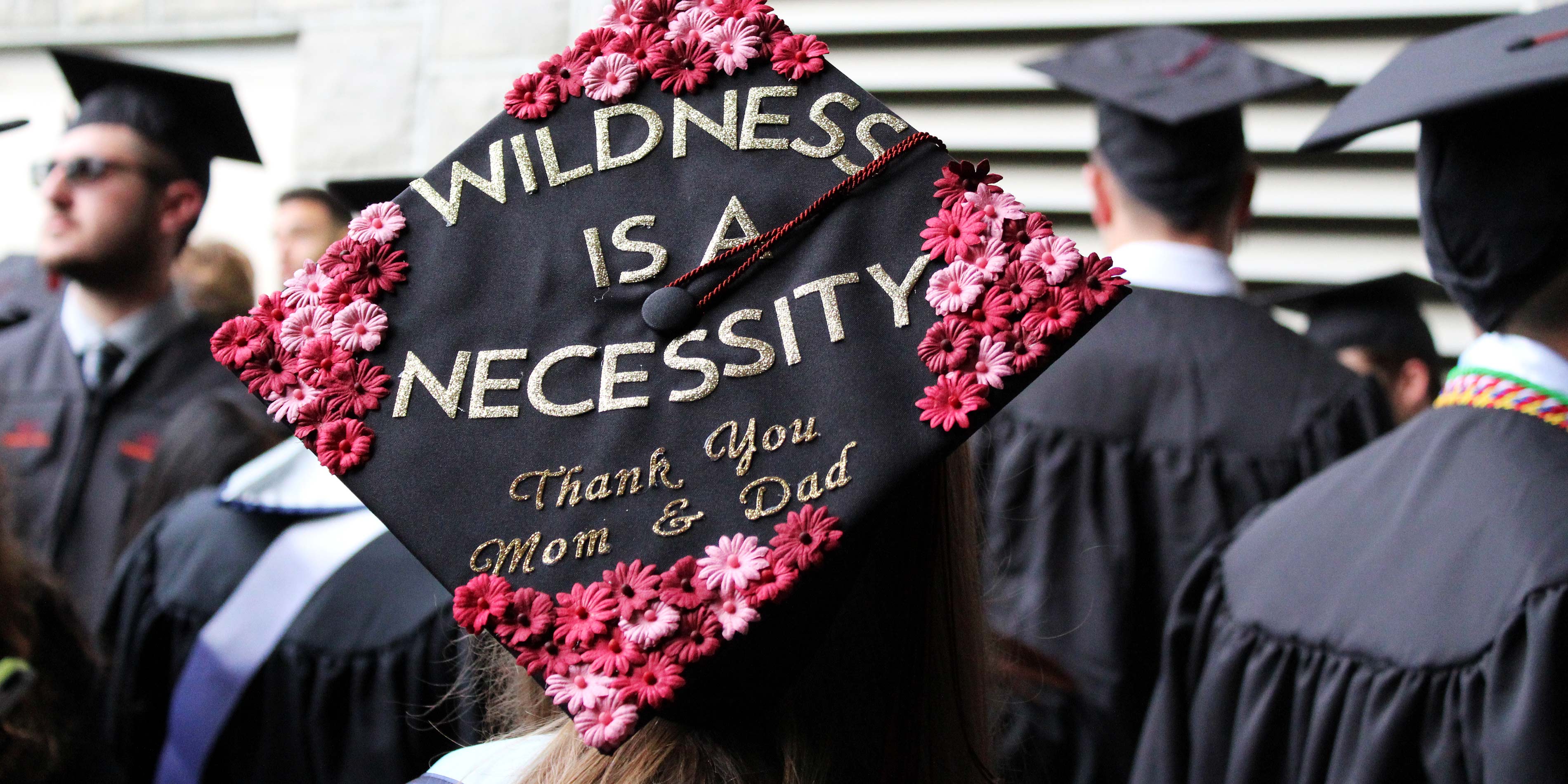For Parents

We’re ready to partner with you during this incredible journey
You’ve been there every step of the way as your student has prepared for the next great adventure in life — earning a college degree. We know you’ve also invested a lot of time and want the best for your student, so we want to be a resource for you as you continue to help with searching for colleges, scheduling visits, and navigating the admission and financial aid processes.
Check out the info below that’s just for parents and contact us if you need additional help. We’re looking for the next generation of leaders in natural resources and sustainability, so let’s work together if your student is interested in being one of them.
Questions?
Contact our director of recruitment, John Gray Williams, at jghokie@vt.edu or 540-231-4909.
Mark your calendar with these key dates and deadlines
- FAFSA available: Oct. 1
- Virginia Tech deadline for completing the FAFSA and the General Scholarship Application for maximum scholarship and financial aid consideration: Jan. 22
- First-year Early Action deadline: Nov. 15
(materials due: Dec. 1; response deadline: May 15) - First-year Regular Decision deadline: Jan. 15
(materials due: Jan. 31; response deadline: May 15) - Transfer application deadline: March 1
(materials due: March 10; response deadline: June 1)
The college search: Tips for parents who want to stay “in the know”
- The most important thing you can do to help your student stay on track with the college search and application processes is to start learning and planning as soon as your student starts high school (if not before!).
- Encourage your student to apply for admission and financial aid well before the deadlines. If they wait until the day of the deadline, it’s guaranteed that the internet will be down, the laptop will break, etc.
- Talk with your student often about majors, colleges, and careers. When a school makes it to the “serious” list, start a folder to collect and store information from the school.
- Decide how many schools your student can/should apply to in order to keep fees in check, and encourage your student to do research and make good choices. It’s also good to make sure they apply to at least one “safe” school and one “reach” school.
- Have a family meeting about costs and financial planning. Don’t rule out any college immediately because of cost, but it’s also important to be realistic about what your family can afford.
- Tell your student about the free SAT prep and practice available through the Kahn Academy.
- Start visiting campuses before senior year and sign up for visits well in advance, as tours and info sessions fill quickly. Remember that when your student is on break, so is everyone else!
- Encourage your student to own the process and complete applications, assist with scheduling visits, etc. Move-in day comes quickly, and then your student will be on their own!
- Your student will receive many mailings and emails — read them for the schools on your student’s short list. Some provide general info, but you’ll also get important communications about deadlines, special events, and more.
Your student’s CNRE advising experience
Orientation for new students and families will be a hybrid program that combines virtual modules and in-person events. All new first-year and transfer students are required to attend a virtual meeting with a CNRE advisor. At this meeting, students will discuss and learn about their schedules, CNRE’s advising and registration processes, and some key take-aways about New Student Orientation.
Below are a few tips that will help make your student’s advising experience a successful one:
- Review the New Student Checklist for action items that your student will need to complete.
- New students will receive emails from their advisor with important information related to orientation and advising, so make sure your student checks their Virginia Tech email on a regular basis.
- After the advising meeting, students can adjust their schedules. However, it is highly recommended that students do NOT make changes to first-year classes such as ENGL 1105, ENGL 1106, COMM 1015, CHEM 1035/1045, BIOL 1105/1115, MATH 1025, or MATH 1225. These classes are in high demand and if a student drops one of them, even accidentally, they may not get back in and will then risk falling behind in their program of study. If your student has questions and feels a schedule change is needed, please contact an advisor.
Helpful resources for parents and families
Admission and enrollment
- Admission process, including requirements, deadlines, and application policies
- Campus visit options and information
- CNRE interest sessions
- CNRE majors
- Financial aid info, including types of aid and how to apply
- Scholarship Central and CNRE scholarships
- Info for admitted students, including orientation programs
- Housing and Residence Life


